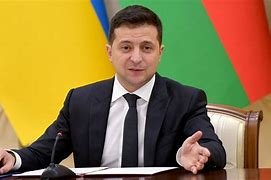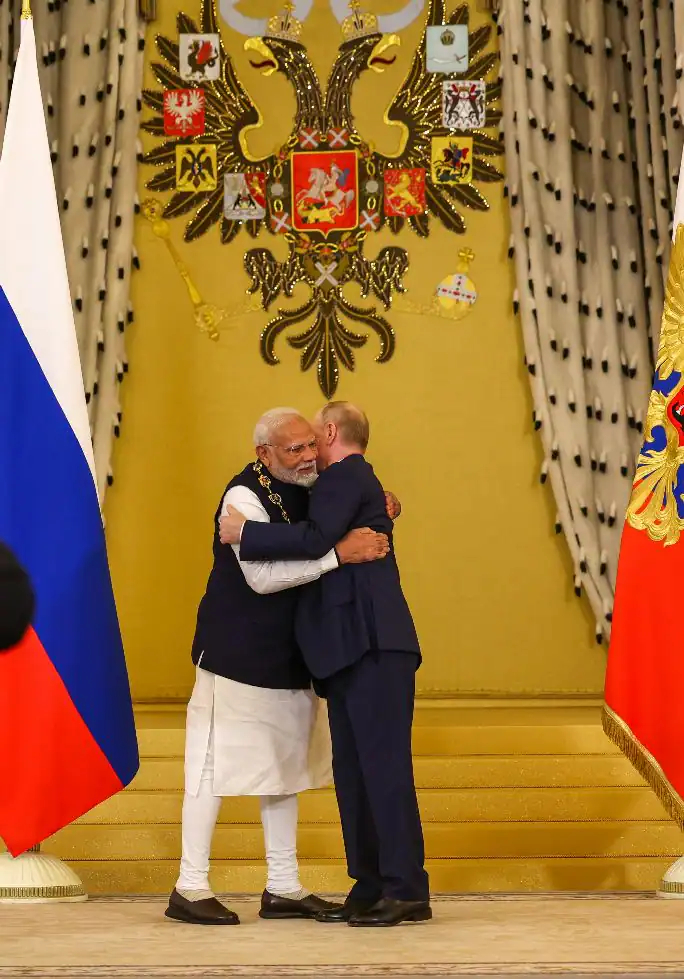India’s Concerns Over Ukraine’s Post on Modi-Putin Hug
Diplomatic relations are often a delicate balancing act, requiring careful navigation of international tensions and alliances. This has been particularly evident in the recent controversy surrounding Ukrainian President Volodymyr Zelenskyy’s criticism of Indian Prime Minister Narendra Modi’s meeting with Russian President Vladimir Putin. The incident has brought to light India’s concerns and the complexities of its foreign policy amidst the ongoing Ukraine conflict.
Table of Contents
Background of the Ukraine Conflict
The Ukraine conflict, which began in 2014 with Russia’s annexation of Crimea, has seen numerous escalations over the years. The conflict intensified in 2022 when Russia launched a full-scale invasion of Ukraine. This ongoing conflict has drawn international attention and condemnation, affecting global diplomatic relations and leading to severe humanitarian crises.
India’s Position on the Ukraine Conflict
India has maintained a cautious stance on the Ukraine conflict, often advocating for peaceful resolution through dialogue. While India has historically had strong ties with Russia, it has also sought to maintain positive relations with Western countries and Ukraine. This neutral position reflects India’s broader foreign policy strategy of non-alignment and strategic autonomy.
The Modi-Putin Meeting
Prime Minister Modi’s meeting with President Putin was part of a broader diplomatic engagement aimed at discussing various bilateral and international issues. The public embrace between Modi and Putin was seen as a symbol of the enduring ties between India and Russia, highlighting the strategic partnership that dates back to the Cold War era.
Zelenskyy’s Criticism

President Zelenskyy criticized the Modi-Putin meeting, particularly highlighting its timing. His objection came shortly after Russian missile strikes reportedly hit a children’s hospital in Ukraine. Zelenskyy’s strong language in his post was a direct response to what he perceived as India’s implicit endorsement of Russia’s actions through Modi’s public display of camaraderie with Putin.
The Impact of Zelenskyy’s Criticism
Zelenskyy’s criticism sparked a flurry of reactions in India. Many Indians viewed the post as an undue interference in India’s foreign policy decisions. The Indian media covered the controversy extensively, and public opinion was divided. On the global stage, the incident added another layer of complexity to the already intricate web of international relations surrounding the Ukraine conflict.
India’s Response to Zelenskyy’s Post
While there has been no official reaction from India to Zelenskyy’s post, it is believed that India may have raised concerns during Modi’s foreign tour. Diplomatic sources suggest that India might have communicated its displeasure through back channels, emphasizing the need for mutual respect in international discourse.
Analysis of India’s Diplomatic Strategy
India’s diplomatic strategy involves balancing its historical ties with Russia and its growing engagement with Western nations. By maintaining a neutral stance, India aims to protect its strategic interests without alienating any major global player. This approach is crucial for India as it navigates the complex geopolitical landscape.
The Role of Media in the Controversy
The media played a significant role in shaping public perception of the Modi-Putin meeting and Zelenskyy’s criticism. In India, media coverage ranged from supportive of Modi’s diplomatic efforts to critical of the perceived insensitivity towards Ukraine’s plight. Internationally, the media highlighted the incident as a reflection of the broader global tensions.
US Concerns and Reactions
The United States expressed concerns about Modi’s visit to Moscow through various channels, including statements from the State Department and public remarks by officials such as the US ambassador and National Security Adviser Jake Sullivan. The US has been a vocal critic of Russia’s actions in Ukraine and viewed Modi’s engagement with Putin through a critical lens.
Potential Consequences for India-Ukraine Relations

In the short term, Zelenskyy’s criticism may strain India-Ukraine relations. However, both nations are likely to continue diplomatic engagements to address mutual concerns. In the long term, the incident underscores the need for careful diplomacy to manage such sensitivities.
India’s Future Diplomatic Moves
Looking ahead, India is expected to continue its balanced approach to foreign policy. This involves engaging with all relevant parties in the Ukraine conflict while advocating for peaceful resolutions. India’s future diplomatic moves will likely focus on maintaining strategic autonomy and avoiding taking sides in global disputes.
Global Diplomatic Implications
The controversy over Modi’s meeting with Putin and Zelenskyy’s subsequent criticism has broader implications for global diplomacy. It highlights the interconnectedness of international relations and the ripple effects that actions and reactions can have across the world. Future diplomatic efforts will need to consider these complexities to foster a stable international environment.
The incident involving President Zelenskyy’s criticism of Prime Minister Modi’s meeting with President Putin reflects the intricate dynamics of global diplomacy. India’s response, both official and unofficial, demonstrates the delicate balance it seeks to maintain in its foreign policy. As the Ukraine conflict continues, India’s role and actions will remain pivotal in shaping international relations.
